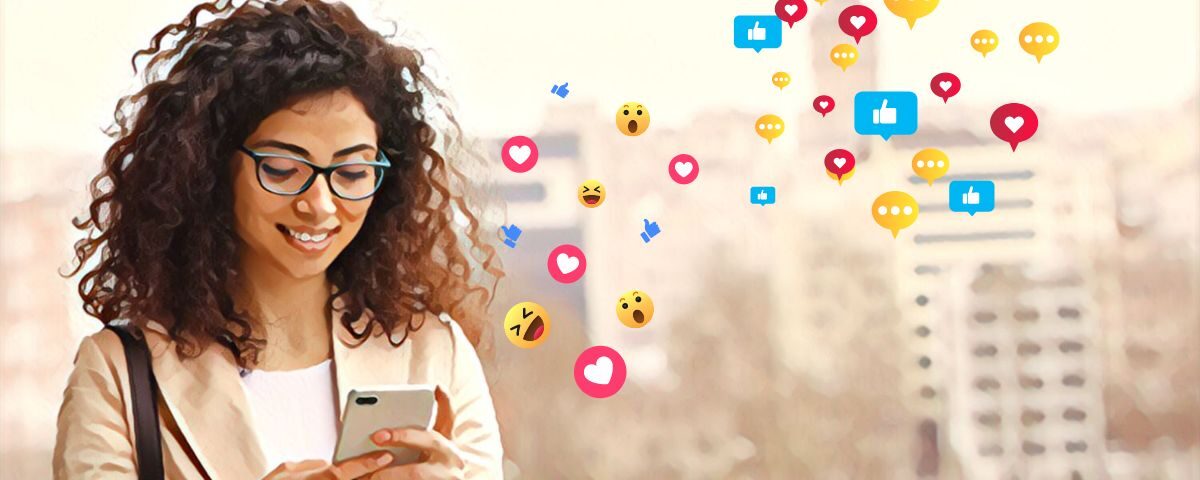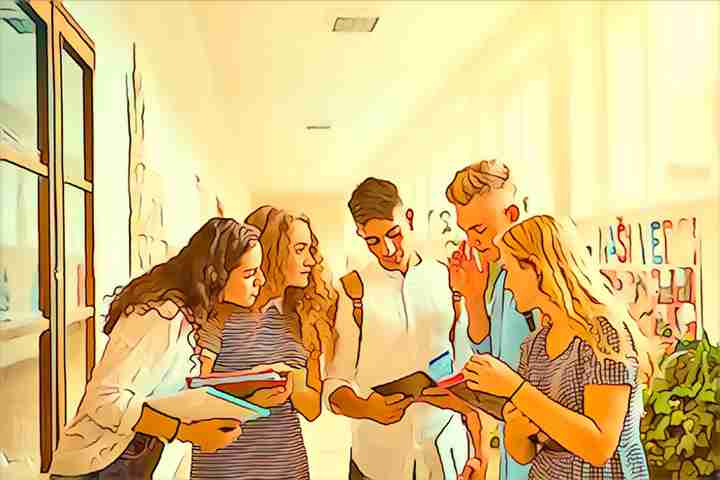
A College Student’s Guide to Professional Dress Code for Interviews
July 22, 2023
How to overcome homesickness in hostel with these awesome tips
August 5, 2023Impact of Social Media on Students: Distraction or Learning Tool?
You’re no stranger to the incredible influence social media holds in today’s world. With platforms like Facebook, Instagram, YouTube, and Twitter, the possibilities for connecting with others, self-expression, and staying updated on current events seem endless. But let’s talk about the impact of social media on you as a student – it’s not always sunshine and rainbows. Studies reveal that excessive use of social media can bring about increased anxiety, depression, and feelings of isolation. Moreover, it’s been linked to poor academic performance and cyberbullying.
Now, let’s have an open and honest discussion about the impact of social media on students, exploring both the positives and negatives of our digital lifestyle.
In this blog post, we’ll explore how social media can be both a distraction and a learning tool. See, it’s not all bad news! Social media provides students like you with a chance to gain fresh perspectives on various subjects and engage in global group discussions. This means you can broaden your academic horizons while developing personally. Pretty neat, right? But hold on, we’ll also discuss the importance of managing your time spent scrolling through newsfeeds so that it doesn’t become an overwhelming distraction.
Evolution of Social Media and Its Impact on Education
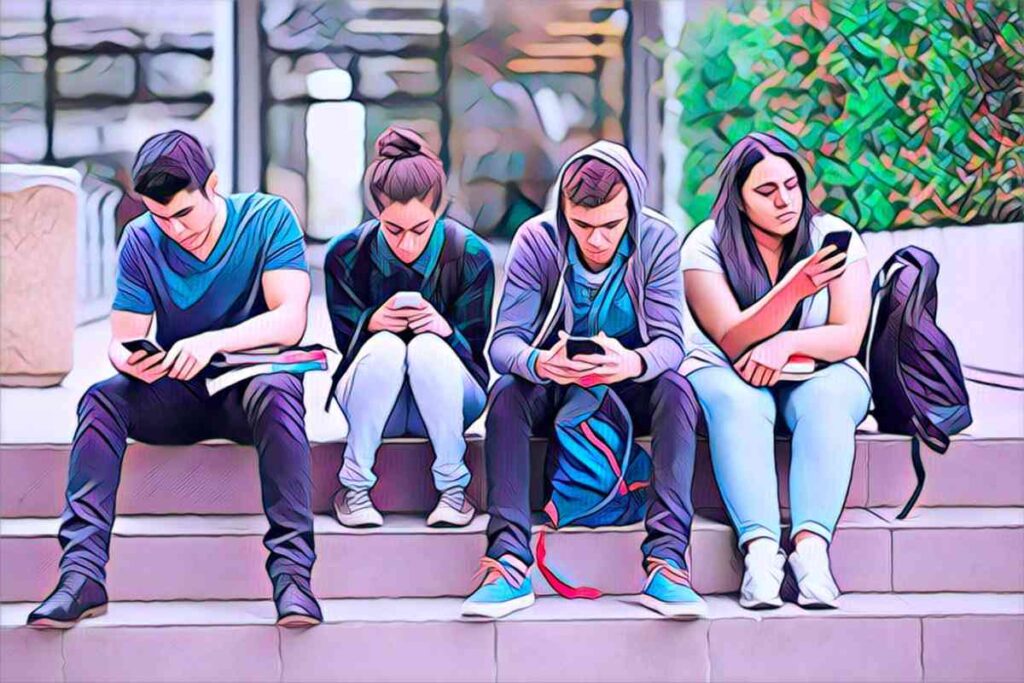
The evolution of social media has transformed the way we communicate, interact, and learn. From the early days of MySpace and Friendster to the current dominance of Facebook, Twitter, Instagram, and YouTube, social media has become an integral part of our daily lives. The impact of social media on education has been significant, with both positive and negative effects. On the one hand, social media has opened up new avenues for learning, collaboration, and communication. On the other hand, it has also raised concerns about distractions, cyberbullying, and the spread of misinformation.
Academic Impact of Social Media on Students
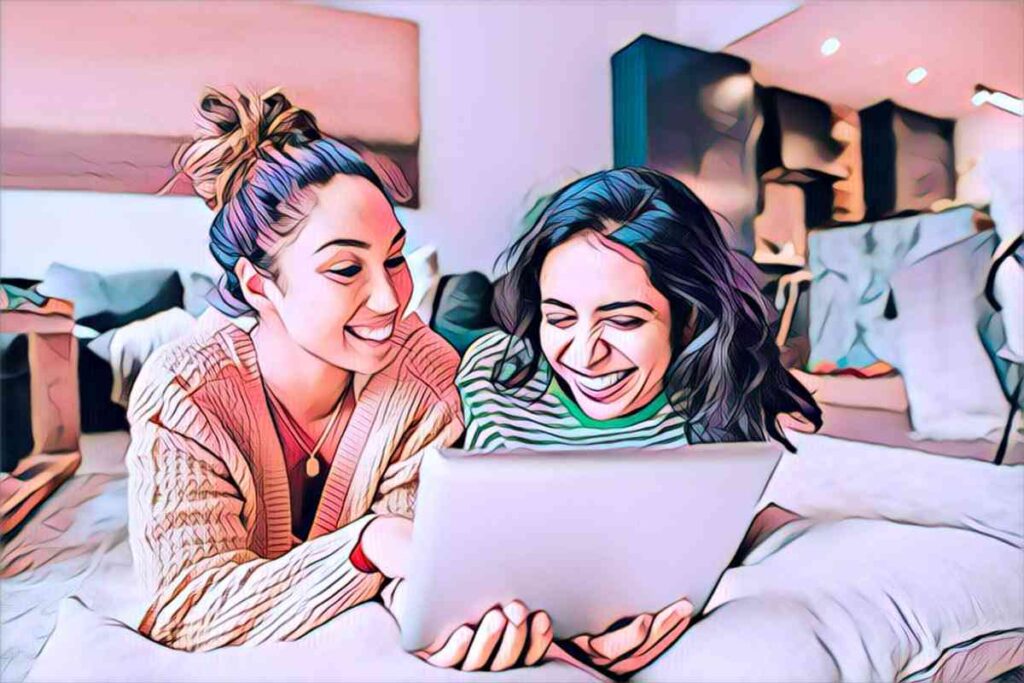
You may have already experienced both the positive and negative effects of social media on your academic performance. On one hand, social media connects you to a wealth of information and academic resources, enabling you to learn and research important concepts with ease. On the other hand, social media’s impact on students can be very disturbing, taking away valuable study time and causing a decline in your grades. It’s important to strike a balance between the two and approach social media consumption responsibly and mindfully. By implementing healthy habits such as setting short study intervals or honoring designated social media use times, you can remain productive without sacrificing your time online. Read on some of the positive impacts of Social Media: –
Engaging the Global Learning Community
When it comes to the impact of social media on students, one significant advantage is the ability to connect with a global learning community. By participating in educational groups, forums, and pages, students can engage with peers who come from diverse educational backgrounds and cultures. This remarkable network enables them to share knowledge, engage in academic discussions, and even collaborate on projects, surpassing geographical limitations. Immersing themselves in these interactions exposes them to a plethora of perspectives, expanding their horizons and cultivating a deeper understanding of various subjects.
Access to Educational Resources and News
Thanks to the vast amount of educational content on social media, students can easily access a wealth of resources. Numerous educational institutions, scholars, and organizations share valuable insights, research papers, articles, and tutorials on these platforms. By following pertinent accounts and joining educational communities, students can stay current with the latest developments in their fields of interest. This access to a wide range of resources enhances their learning experiences and keeps them informed about advancements in their chosen areas of study, demonstrating the significant social media impact on students.
Unlocking Collaborative Learning through Social Media
When it comes to the impact of social media on students, one key aspect is the facilitation of collaboration and peer learning. These platforms provide a virtual space where students can come together to form online study groups, participate in discussion forums, and even engage in virtual study sessions. By leveraging these tools, you can connect with your classmates, exchange study materials, seek assistance when needed, and contribute your own knowledge. This collaborative approach not only strengthens the sense of community but also serves as a valuable support system for your academic journey. Embracing these opportunities allows you to tap into the collective wisdom of your peers, reinforcing your understanding of academic concepts and fostering a richer learning experience.
Engaging with Educators and Experts
Social media allows direct engagement with educators, experts, and influencers across various fields. Many renowned professors, industry professionals, and subject matter experts actively participate in discussions and share their expertise on platforms like Twitter, LinkedIn, and YouTube. Students can follow and interact with these individuals, seeking advice, clarifying doubts, or obtaining mentorship. This direct interaction with experts brings real-world insights into the academic world and motivates students to pursue their passions with increased enthusiasm.
Highlighting Academic Accomplishments
Social media offers a platform for students to display their academic achievements and projects, demonstrating the social media impact on students. Platforms like LinkedIn enable students to create professional profiles that emphasize their skills, education, and accomplishments. By sharing their academic successes and research work, students can capture the attention of potential employers, scholarship committees, or admissions officers. This visibility enhances their credibility and paves the way for future opportunities.
Cultivating Digital Literacy and Communication Skills
Engaging with social media platforms sharpens crucial digital literacy and communication skills that are increasingly valued in today’s world. Students learn to navigate online environments, critically assess information, and effectively present their ideas. They gain expertise in written communication as they articulate their thoughts in posts, comments, and messages. These skills are not only essential for academic success but also equip students for future professional pursuits.
Benefits of Social Media in Education
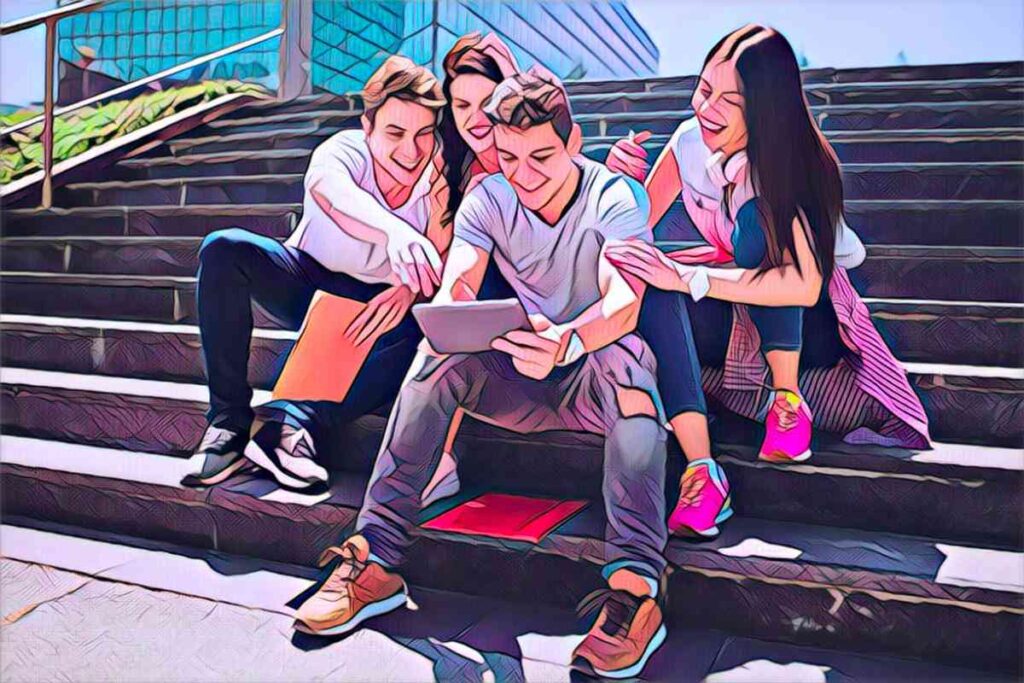
Social media has several benefits in education, including:
Enhanced communication and collaboration among students, teachers, and parents
Access to a vast array of educational resources and information
Opportunities for students to showcase their work and receive feedback
Development of digital literacy and online safety skills
Increased engagement and motivation in learning
The Impact of Social Media on Students’ Mental Health
Social media has become an integral part of our lives. However, have you ever thought about the social media impact on student’s mental health? An increasing number of studies show that social media can have significant negative effects on mental health, ranging from heightened anxiety and depression to lowered self-esteem and even addiction. It’s essential to be conscious of these potential risks and take steps to reduce them, such as limiting your social media usage or seeking help if necessary. By staying informed and proactive, you can foster a healthy relationship with social media while prioritizing your mental well-being.
Social Media Use and Mental Health Concerns
The connection between social media use and students’ mental health is complex. While social media platforms provide connectivity and support, excessive usage has been linked to increased loneliness, depression, and anxiety among students. Finding a balance between meaningful connections and mental well-being is vital, especially when considering social media’s impact on students.
The Role of Cyberbullying and Its Impact on Students
Cyberbullying, an unfortunate outcome of social media, presents considerable risks to students’ mental health. The anonymity and extensive reach of online platforms amplify its impact. Cultivating an empathetic culture, incorporating digital citizenship education, and establishing efficient reporting mechanisms are crucial for tackling cyberbullying and creating safer online environments for students.
Social Media Addiction and Its Impact on Mental Well-being
Impact of social media on students can have a negative effect when it becomes an addiction. Constant comparison, fear of missing out (FOMO), and weakened offline connections result in lowered self-esteem and increased stress levels. Encouraging digital detoxes, establishing healthy boundaries, and practicing mindful social media usage are effective strategies for addressing social media addiction and fostering mental well-being.
The Connection between Social Media and Body Image Issues
The influence of social media on body image concerns is undeniable. Idealized representations of beauty contribute to low self-esteem and body dissatisfaction among students, further emphasizing social media’s impact on students. Advocating for media literacy, nurturing body positivity, and inspiring self-acceptance are vital in helping students develop healthier relationship with their bodies within the context of social media. By acknowledging these issues and implementing strategies to combat them, students can better manage their engagement with social media platforms and maintain a more positive outlook on themselves and their mental well-being.
Privacy and Security Issues in Social Media
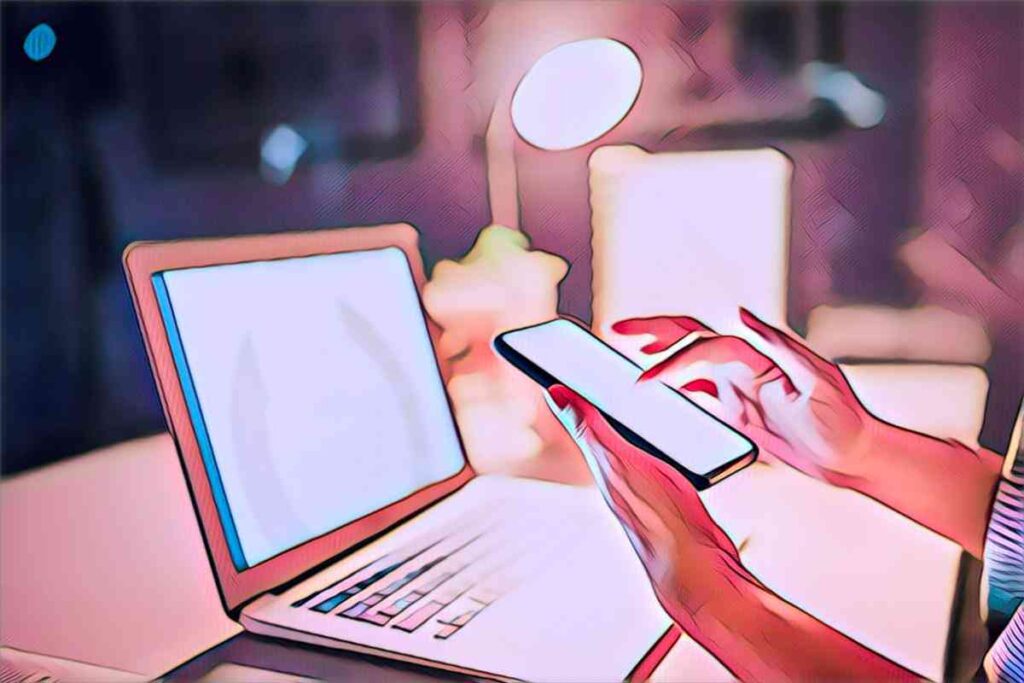
Safeguarding your digital presence is crucial for everyone, especially with the increasing social media impact on students. It’s vital to comprehend that your online activities leave a footprint, and it’s essential to protect your privacy and security while engaging with social media platforms. Identity theft, cyberbullying, and phishing attacks are just a few potential hazards that could jeopardize your digital space. A proactive approach to managing your online presence involves frequently checking your privacy settings, refraining from disclosing excessive personal information, and being mindful of the content you share. Adopting these steps will significantly contribute to shielding you from the adverse effects of social media.
The Dangers of Disclosing Personal Details Online
In today’s era of social media, we often divulge personal information without considering the possible repercussions. From our full names and birthdates to our locations and daily habits, this data can end up in the wrong hands, jeopardizing our privacy and security, and increasing the social media impact on students.
Online Security Risks and Scams Affecting Students
Specifically, students face distinct risks on social media platforms. Cybercriminals exploit their limited experience and trusting disposition, employing various strategies such as phishing, counterfeit profiles, misleading contests, and deceitful job offers. Students need to recognize these threats and adopt measures to safeguard themselves from the negative consequences of social media’s impact on students.
Reducing Risks: Safeguarding Your Privacy and Security
To protect your digital presence and minimize the social media impact on students, it’s crucial to be proactive and take charge of your social media accounts. Begin by examining and modifying your privacy settings to restrict the visibility of your personal information to only trusted connections. Exercise caution when accepting friend requests from unknown individuals and be discreet when sharing photos and videos.
Long-Term Consequences of Your Digital Footprint
Your digital footprint trail left by your online activities can carry enduring effects. Employers, college admissions officers, and others may examine your online presence, making it essential to be mindful of the content you produce and curate. Every post and share adds to your online reputation, so think twice before sharing something that could adversely affect your personal and professional image, and consider the potential social media impact on students.
Navigating the Digital Landscape
Navigating the digital landscape requires a critical and nuanced understanding of the impact of social media on education. Educators, policymakers, and parents must work together to create a safe and supportive online environment that promotes learning and well-being. This includes:
Developing digital literacy programs that teach students how to critically evaluate online information and navigate social media platforms safely
Implementing policies and guidelines that promote responsible social media use and prevent cyberbullying
Encouraging open communication and collaboration among students, teachers, and parents
Providing resources and support for students who may be struggling with the negative effects of social media
Best Practices for Using Social Media for Learning
To maximize the benefits of social media in education, it’s essential to use it in a way that is intentional, strategic, and responsible. Here are some best practices for using social media for learning:
Use social media to supplement traditional teaching methods, rather than replace them
Encourage students to use social media to collaborate and share their work
Teach students how to critically evaluate online information and identify credible sources
Use social media to provide feedback and support to students
Monitor and address cyberbullying and online harassment
Future of Social Media in Education
The future of social media in education is likely to be shaped by emerging technologies such as artificial intelligence, virtual reality, and blockchain. As social media continues to evolve, it’s essential to consider the potential implications for education, including:
The potential for personalized learning and adaptive assessments
The use of virtual reality and augmented reality to enhance learning experiences
The development of blockchain-based platforms for secure and transparent online transactions
The need for ongoing professional development and training for educators to stay up-to-date with the latest technologies and trends.
Conclusion
Social media has emerged as a crucial aspect of a student’s life, presenting numerous opportunities for academic advancement and personal growth. By interacting with a global learning community, accessing educational resources, collaborating with peers, engaging with experts, showcasing accomplishments, and honing digital literacy and communication skills, students can use social media to elevate their academic journey. Students need to utilize social media thoughtfully, ensuring it aligns with their educational objectives and results in valuable academic experiences. Leveraging social media as a learning tool empowers students to flourish in an increasingly interconnected world.
The social media impact on students highlights the importance of deliberate decision-making. By striking a balance between online involvement and well-being, students can reap the rewards of social media while minimizing potential negative consequences. Let’s encourage students to adopt a mindful approach, nurturing a digital space that enriches their lives and fosters their growth.

